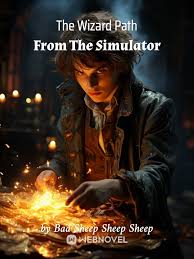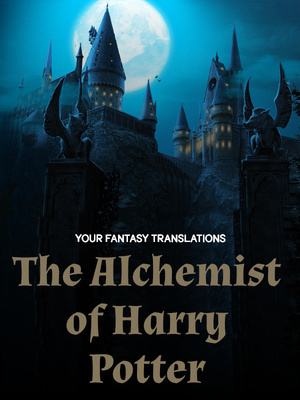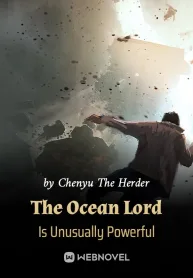Chapter 282: Blossoming Spring
“Duke Rovostar heads south, Prince Orion, to combat the approaching forces of the south. Though we can still see the dust clouds from their horses, we long ago lost sight of the army itself,” a kneeling royal knight said to Orion. Bandages peeked out from places in his golden armor, marking him as a plagued Waxknight. “We would need to send scouts to confirm where they are precisely.”
Orion patted the man on the shoulder. “I would not risk lives by sending men out on foolish scouting missions. I trust what we can see from the walls of Dirracha,” he assured his man.
The knight knelt a little lower and continued, “Our conjecture, my prince, is that the army of Rovostar heads to reinforce the southern fortresses. By now, the Margrave will be heading out to begin his war. Winter has passed, after all, and the snows melt from north to south.”
Orion nodded. “Good, good. Felipe has stocked this city well enough to last a year with its provisions—even the city’s residents itself can be fed. Distribution fares well, does it not?”
“It does, my prince,” the knight confirmed.
“Excellent. The people will not starve under my watch,” Orion declared. “Carry on. I must visit with Vasquer.”
The knight walked away, leaving Orion alone in the royal palace. At once, he clutched his head.
Ninety-six voices raged against his mind constantly, battering at the walls of his consciousness. Orion had always been whole and hearty and remained so, yet dark circles underneath his eyes indicated both stress and fatigue that were foreign to him. Just as he had gone against his parent, defying the wisdom of the gods, so too had they gone against him.
The gods—for indeed they were still gods, even as deceivers—did not allow Orion a moment of repose. He was acting against their instructions, and for this, he was constantly beset by their pleas and demands. Their whispers became not comfort nor guidance as they had always been, but an insidious punishment. He was kept from sleep, kept from focus.
They could not take away the blessings they’d bestowed upon Orion, even rogue as he had gone. Instead, they constantly insisted upon the debt that he owed them, the relationship that they shared. It was like a leash tugging at the neck. Worse yet was that the gods of Vasquer were not in unity—some wished for him to kill Felipe and take his place as king, while others yet wished for him to resume the status quo. It wore at Orion’s sanity, day by day.
Before he could even realize that he had travelled, Orion opened his eyes and found himself gazing upon Vasquer. The snake moved, coiling around Orion in greeting. At once, like a balm upon his wounds, some of the intensity of the pressure pushing at his mind was alleviated, the burden shouldered by Vasquer like a parent taking a child’s backpack. He stayed, wrapped in the embrace of the great serpent that was his ancestor.
And then, he began his duty—his sole task locked in this City of Dragons before his other kin could come and relieve him. He strode to the metal rings binding Vasquer. They were numerous, thoroughly enchanted, and took tremendous effort to remove… but all Orion had was his effort. He’d already removed enough to give Vasquer some measure of mobility, yet thousands more remained. He battered, kicked, and tore at them, slowly endeavoring to free his great ancestor.
Gerechtigkeit was coming. Orion would prepare for its advent. He would mend his shattered family, right all of the wrongs in the world, and be a hero to the masses.
It was as Argrave said in the visions shown to him by the great serpent: “If there was ever a line in the sand between good and evil, I think ‘fell calamity that endeavors to destroy everything’ is quite obviously on the evil side.”
Orion did not know right and wrong. It was a difficult concept for him to conceive of, and so he had always been told. But as Argrave said, he knew of what was to come and the evil behind it. And now, lost spiritually and breaking down day by day… all Orion wished was to leave something good behind.
#####
A flash of crimson soared through the sky, leaving a roar in its wake that shook the sky like thunder. Then, a mass of red scales slammed against the walls of the castle. Margrave Reinhardt’s wyvern clung to the stone, its breath a low roar of defiance as men on the walls scattered in fear. The Margrave himself stepped atop his mount’s head, gazing at all below with a battleax in hand.
A mage on the walls cast a spell, and a mana-ripple indicating an A-rank spell was coming split the air. A great blade of fire manifested, swinging towards the wyvern’s head and the Margrave both. But Helmuth, the dark-haired spellcaster with eyes like purple vortexes, stepped up to defend his liege. His own spell created a mana ripple in turn, a silver streak spreading out.
A solid shield of silver met the blade of fire, and flames billowed up into the sky like some kind of solar flare. By the time the flames subsided, the Margrave had already dismounted and charged into a crowd of men flanked by his white-armored knights.
The Margravate’s knights slammed into the men manning the walls like the tide during a storm, their enchanted blades cutting through the defenders with practiced skill. Bodies fell into the inner courtyard of the castle, some of them in pieces. The Margrave himself rushed after the mage. As the man prepared another spell, Reinhardt grasped at his belt and threw a dagger. It stabbed through the man’s wrist, ending his spell prematurely. Margrave Reinhardt fell upon him, cleaving him in the neck with his axe.
At the foot of the walls outside the castle, the now-unmanned walls could not even attempt to stop the approaching force. Numerous brave men carried a large and sturdy ladder, preparing for an escalade. The ladder was tilted, fitting into a spot between the parapets so naturally it seemed to be engineered to fit there—and perhaps it had.
More and more ladders fit against the walls of the castle. Knights began climbing up them. By now, mages on other sides of the walls moved to reinforce the point of assault, but mages on the side of the rebels countered whatever magic was thrown at the invaders. Like this, the fortress was breached—knights under Duke Sumner, Duke Enrico, Count Delbraun, or Duke Marauch flooded the walls, soon outnumbering the defenders.
Better-trained, better-equipped, better-supported—the rebel knights swarmed into the fortress and dealt with the invaders. Soon enough, the largest problem became the cramped spaces. One unlucky soul was pushed by those behind him and fell into the courtyard where the defenders had retreated.
The assault was quick and bloody. Soon enough, the defenders that were not slain surrendered. Highborn captives were quickly isolated, secured, and brought to the courtyard. Spellcasters received the same treatment. All others were seized and forced to provide directions to what had been their castle’s dungeon, where a harsh fate likely awaited them.
“The castle is ours, Margrave Reinhardt,” one of his knights reported as he walked the walls, his breathing still heavy and his ax still held close at hand. “All our captives be lamenting the fact that they had not surrendered when given the opportunity, I should think.”
“Do not treat them cruelly. They are men of the realm just as you or me, and we have put them all in a difficult position by our act of rebellion,” the Margrave instructed. “Take five good men and scour every inch of the castle, interrogate all staff. I would not have this place trapped or harbor some assassin in our midst because of negligence in the wake of victory.”
The Margrave’s knight received his order and stepped away. A knight in gray, a white moon as his sigil, stepped up beside the Margrave. His armor was quite ornate.
“A splendid assault, Reinhardt,” the man said, removing his helmet. The knight was Duke Sumner. Judging from the blood on him, he’d not shied away from battle, heading into the thick of it just as the Margrave had. “Your mage, Helmuth—a capable one.”
“Hmm,” the Margrave agreed. “It was only possible because the walls were low enough for an assault. These fortifications are meagre.”
“Yet we need them all the same, unless you would have our armies sleep in the fields,” Duke Sumner reminded, looking into the distance. “Fine prey for an army of armored horsemen.”
Far away, a great dust cloud filled the sky; a telltale sign of an approaching army. Margrave Reinhardt had received some information from Stain, formerly Veladrien of Jast, about this opposing force that came to meet them—helmed by Duke Rovostar, they were mainly highly-trained cavalry of central Vasquer. Armored cavalry were unmatched in the field, and so these fortifications would be vital to resist them.
“We hold the advantage, ostensibly, but I will not throw lives away in a reckless assault on the field,” the Margrave continued. “We hold the fortifications we’ve seized, and we slowly push at vulnerabilities.”
Hopefully, this will give the north time to rally under Argrave, invade from the opposite side, the Margrave thought, though he left those words unspoken before Duke Sumner. We can yet end this war without thousands of souls dead. Rovostar cannot throw away his men’s lives so foolishly if he knows defeat is coming. And Argrave can win men like Sumner over, I’m sure of it…
“You might be used to holding a fortification, having held the tide against the barbarians of the Burnt Desert in your Lionsun Castle…” Duke Sumner said, placing his helmet back on. “But I fear the rest of us will not be so content in passing the seasons by behind walls. You are our leader, and we follow your order… but still. Spring has just arrived. Summer comes, and then fall. I would not like to see another winter with this war unended. Something to keep in mind,” Sumner contributed.
Margrave Reinhardt nodded, having experienced the zeal with which these men conquered firsthand. Victory felt close at hand for them, and they lusted for battle, glory, and wealth. But Reinhardt knew that no war was won through confidence alone. Rovostar had campaigned alongside Felipe in his many conquests of the past. He was not a foe to fall easily, not a foe to cede even the smallest advantage.
And spring had just begun.
Orion patted the man on the shoulder. “I would not risk lives by sending men out on foolish scouting missions. I trust what we can see from the walls of Dirracha,” he assured his man.
The knight knelt a little lower and continued, “Our conjecture, my prince, is that the army of Rovostar heads to reinforce the southern fortresses. By now, the Margrave will be heading out to begin his war. Winter has passed, after all, and the snows melt from north to south.”
Orion nodded. “Good, good. Felipe has stocked this city well enough to last a year with its provisions—even the city’s residents itself can be fed. Distribution fares well, does it not?”
“It does, my prince,” the knight confirmed.
“Excellent. The people will not starve under my watch,” Orion declared. “Carry on. I must visit with Vasquer.”
The knight walked away, leaving Orion alone in the royal palace. At once, he clutched his head.
Ninety-six voices raged against his mind constantly, battering at the walls of his consciousness. Orion had always been whole and hearty and remained so, yet dark circles underneath his eyes indicated both stress and fatigue that were foreign to him. Just as he had gone against his parent, defying the wisdom of the gods, so too had they gone against him.
The gods—for indeed they were still gods, even as deceivers—did not allow Orion a moment of repose. He was acting against their instructions, and for this, he was constantly beset by their pleas and demands. Their whispers became not comfort nor guidance as they had always been, but an insidious punishment. He was kept from sleep, kept from focus.
They could not take away the blessings they’d bestowed upon Orion, even rogue as he had gone. Instead, they constantly insisted upon the debt that he owed them, the relationship that they shared. It was like a leash tugging at the neck. Worse yet was that the gods of Vasquer were not in unity—some wished for him to kill Felipe and take his place as king, while others yet wished for him to resume the status quo. It wore at Orion’s sanity, day by day.
Before he could even realize that he had travelled, Orion opened his eyes and found himself gazing upon Vasquer. The snake moved, coiling around Orion in greeting. At once, like a balm upon his wounds, some of the intensity of the pressure pushing at his mind was alleviated, the burden shouldered by Vasquer like a parent taking a child’s backpack. He stayed, wrapped in the embrace of the great serpent that was his ancestor.
And then, he began his duty—his sole task locked in this City of Dragons before his other kin could come and relieve him. He strode to the metal rings binding Vasquer. They were numerous, thoroughly enchanted, and took tremendous effort to remove… but all Orion had was his effort. He’d already removed enough to give Vasquer some measure of mobility, yet thousands more remained. He battered, kicked, and tore at them, slowly endeavoring to free his great ancestor.
Gerechtigkeit was coming. Orion would prepare for its advent. He would mend his shattered family, right all of the wrongs in the world, and be a hero to the masses.
It was as Argrave said in the visions shown to him by the great serpent: “If there was ever a line in the sand between good and evil, I think ‘fell calamity that endeavors to destroy everything’ is quite obviously on the evil side.”
Orion did not know right and wrong. It was a difficult concept for him to conceive of, and so he had always been told. But as Argrave said, he knew of what was to come and the evil behind it. And now, lost spiritually and breaking down day by day… all Orion wished was to leave something good behind.
#####
A flash of crimson soared through the sky, leaving a roar in its wake that shook the sky like thunder. Then, a mass of red scales slammed against the walls of the castle. Margrave Reinhardt’s wyvern clung to the stone, its breath a low roar of defiance as men on the walls scattered in fear. The Margrave himself stepped atop his mount’s head, gazing at all below with a battleax in hand.
A mage on the walls cast a spell, and a mana-ripple indicating an A-rank spell was coming split the air. A great blade of fire manifested, swinging towards the wyvern’s head and the Margrave both. But Helmuth, the dark-haired spellcaster with eyes like purple vortexes, stepped up to defend his liege. His own spell created a mana ripple in turn, a silver streak spreading out.
A solid shield of silver met the blade of fire, and flames billowed up into the sky like some kind of solar flare. By the time the flames subsided, the Margrave had already dismounted and charged into a crowd of men flanked by his white-armored knights.
The Margravate’s knights slammed into the men manning the walls like the tide during a storm, their enchanted blades cutting through the defenders with practiced skill. Bodies fell into the inner courtyard of the castle, some of them in pieces. The Margrave himself rushed after the mage. As the man prepared another spell, Reinhardt grasped at his belt and threw a dagger. It stabbed through the man’s wrist, ending his spell prematurely. Margrave Reinhardt fell upon him, cleaving him in the neck with his axe.
At the foot of the walls outside the castle, the now-unmanned walls could not even attempt to stop the approaching force. Numerous brave men carried a large and sturdy ladder, preparing for an escalade. The ladder was tilted, fitting into a spot between the parapets so naturally it seemed to be engineered to fit there—and perhaps it had.
More and more ladders fit against the walls of the castle. Knights began climbing up them. By now, mages on other sides of the walls moved to reinforce the point of assault, but mages on the side of the rebels countered whatever magic was thrown at the invaders. Like this, the fortress was breached—knights under Duke Sumner, Duke Enrico, Count Delbraun, or Duke Marauch flooded the walls, soon outnumbering the defenders.
Better-trained, better-equipped, better-supported—the rebel knights swarmed into the fortress and dealt with the invaders. Soon enough, the largest problem became the cramped spaces. One unlucky soul was pushed by those behind him and fell into the courtyard where the defenders had retreated.
The assault was quick and bloody. Soon enough, the defenders that were not slain surrendered. Highborn captives were quickly isolated, secured, and brought to the courtyard. Spellcasters received the same treatment. All others were seized and forced to provide directions to what had been their castle’s dungeon, where a harsh fate likely awaited them.
“The castle is ours, Margrave Reinhardt,” one of his knights reported as he walked the walls, his breathing still heavy and his ax still held close at hand. “All our captives be lamenting the fact that they had not surrendered when given the opportunity, I should think.”
“Do not treat them cruelly. They are men of the realm just as you or me, and we have put them all in a difficult position by our act of rebellion,” the Margrave instructed. “Take five good men and scour every inch of the castle, interrogate all staff. I would not have this place trapped or harbor some assassin in our midst because of negligence in the wake of victory.”
The Margrave’s knight received his order and stepped away. A knight in gray, a white moon as his sigil, stepped up beside the Margrave. His armor was quite ornate.
“A splendid assault, Reinhardt,” the man said, removing his helmet. The knight was Duke Sumner. Judging from the blood on him, he’d not shied away from battle, heading into the thick of it just as the Margrave had. “Your mage, Helmuth—a capable one.”
“Hmm,” the Margrave agreed. “It was only possible because the walls were low enough for an assault. These fortifications are meagre.”
“Yet we need them all the same, unless you would have our armies sleep in the fields,” Duke Sumner reminded, looking into the distance. “Fine prey for an army of armored horsemen.”
Far away, a great dust cloud filled the sky; a telltale sign of an approaching army. Margrave Reinhardt had received some information from Stain, formerly Veladrien of Jast, about this opposing force that came to meet them—helmed by Duke Rovostar, they were mainly highly-trained cavalry of central Vasquer. Armored cavalry were unmatched in the field, and so these fortifications would be vital to resist them.
“We hold the advantage, ostensibly, but I will not throw lives away in a reckless assault on the field,” the Margrave continued. “We hold the fortifications we’ve seized, and we slowly push at vulnerabilities.”
Hopefully, this will give the north time to rally under Argrave, invade from the opposite side, the Margrave thought, though he left those words unspoken before Duke Sumner. We can yet end this war without thousands of souls dead. Rovostar cannot throw away his men’s lives so foolishly if he knows defeat is coming. And Argrave can win men like Sumner over, I’m sure of it…
“You might be used to holding a fortification, having held the tide against the barbarians of the Burnt Desert in your Lionsun Castle…” Duke Sumner said, placing his helmet back on. “But I fear the rest of us will not be so content in passing the seasons by behind walls. You are our leader, and we follow your order… but still. Spring has just arrived. Summer comes, and then fall. I would not like to see another winter with this war unended. Something to keep in mind,” Sumner contributed.
Margrave Reinhardt nodded, having experienced the zeal with which these men conquered firsthand. Victory felt close at hand for them, and they lusted for battle, glory, and wealth. But Reinhardt knew that no war was won through confidence alone. Rovostar had campaigned alongside Felipe in his many conquests of the past. He was not a foe to fall easily, not a foe to cede even the smallest advantage.
And spring had just begun.







